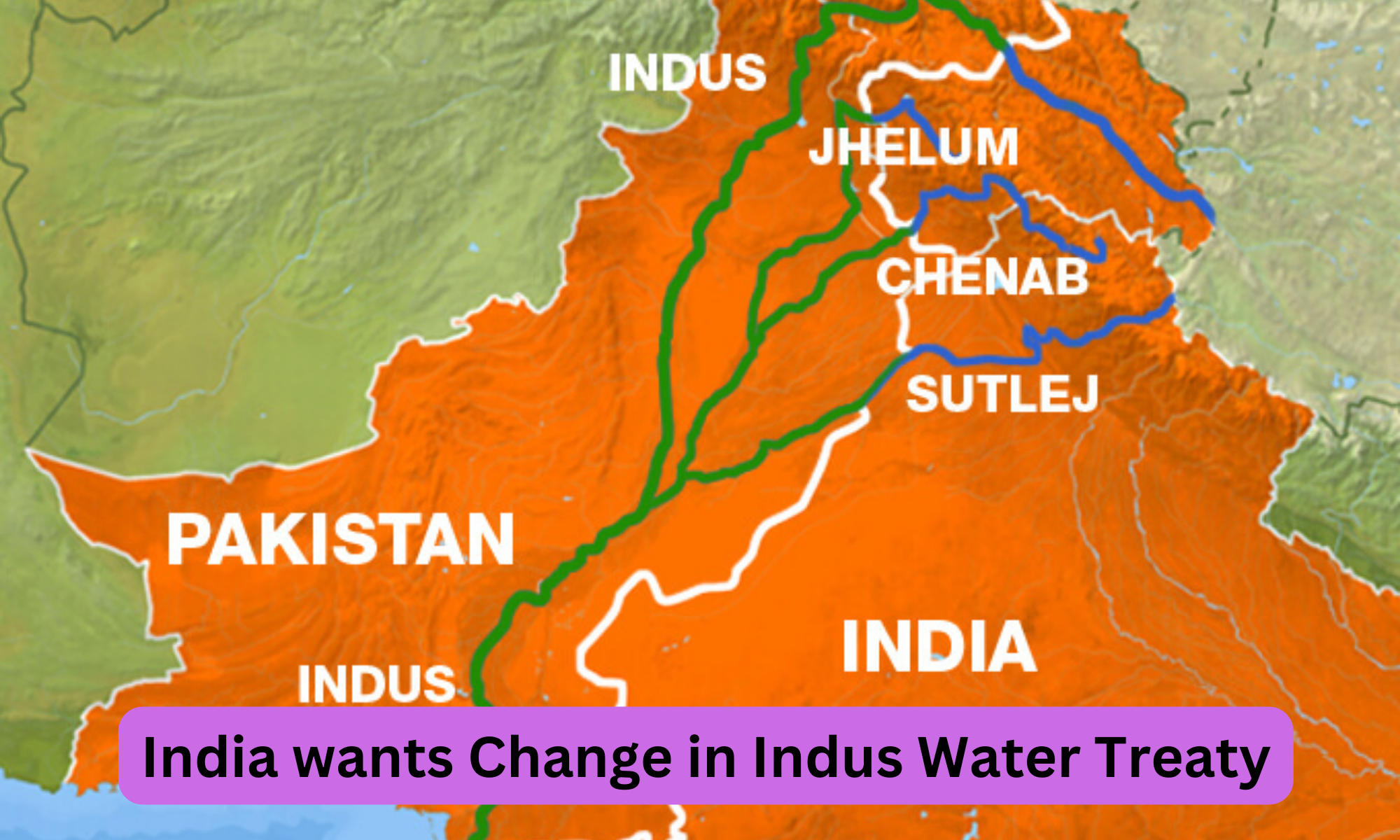
by Asadullah Mahesar 4 August 2023
After that the war of 1947 between India and Pakistan, India cut off Pakistan’s water in April 1948. From here, the water clash between two neighbouring countries began and was resolved in 1960 after a lengthy discussion of nine years. The Indus Water Treaty (IWT) was signed to sort out the long-lasting dispute of sharing of rivers between India and Pakistan in 1960 at Karachi; moreover, the Treaty was facilitated by the World Bank. According to the Treaty, Western rivers like Indus, Jhelum, and Chenab were assigned to Pakistan, whereas Eastern rivers like Ravi, Beas, and Sutlej were exclusively allocated to India. Furthermore, India had granted the right of 20% of Western rivers for non-consumptive use encompassing hydroelectric projects and domestic and agricultural purposes. The Treaty is the most successful treaty in the world, lasting since 1960 after the two full-fledged wars of 1965 and 1971 between India and Pakistan.
Here, we should know how to resolve the dispute over rivers prescribed in the Treaty. Three processes are assigned to sort out the contention between India and Pakistan over the water. In the first case, the Permanent Indus Commission has been constituted to rectify the questions raised by the two countries, and the Commission ought to meet twice a year to monetarize the Treaty. In the second process, if the questions become differences and do not resolve through the Commission, then it would be fixed by a Neutral Expert appointed by the World Bank. Furthermore, if the differences become disputes and are not sorted out by a Neutral Expert, they will go to the Permanent Court of Arbitration.
Additionally, Pakistan has always had reservations regarding the construction of hydro projects on the Western rivers by India. Although India began constructing the Baglihar project 900MW on river Chenab in 1999, that was completed in 2008 in Indian-occupied Kashmir (IOK). Besides, Pakistan declined the project’s design, saying it would reduce the water flow in the Chenab River. So, the dispute over the project could not be resolved through a bilateral discussion; therefore, it went to a Neutral Expert appointed by the World Bank in 2008. Consequently, the case was resolved through a Neutral Expert, and India accepted the claim raised by Pakistan to redesign the project.
Recently, India has been constructing the Kishenganga of 330MW and Ratle of 850MW projects on the Jhelum and Chenab rivers in IOK. Pakistan had objections over these projects, so Pakistan requested the World Bank to proceed with the dispute over Kishenganga and Ratle projects before the Court of Arbitration on 19 August 2016. Thus, India asked, too, the World Bank to appoint a Neutral Expert to overcome the dispute. However, the World Bank paused appointing the Chairman of the Court of Arbitration and a Neutral Expert in December 2016 as the two countries resolved the disputes through bilateral discussion. India desires to resolve these disputes by a graded approach as prescribed in the Treaty that a Neutral Expert would sort out the differences between the two countries. Still, Pakistan likes it through the Court of Arbitration. Moreover, India wants to amend the Treaty to settle the disputes through a bilateral approach. For this purpose, India sent a notice to Pakistan in January 2023, but Pakistan doesn’t want to do so. Therefore, the World Bank accepted both requests of India and Pakistan to appoint the Chairman of the Court of Arbitration and a Neutra Expert in December 2022.
Furthermore, India declined the constitution of the Court of Arbitration by raising six arguments: first, the formation of the Court of Arbitration is illegal; second, the Court doesn’t have competency; third, the dispute should resolve by a Neutral Expert, fourth, Pakistan doesn’t follow the Treaty, fifth, the differences would be resolved first by a Neutral Expert instead of the Court of Arbitration, Sixth, the constitution of Court’s penal does not follow the section ‘G’ of the Treaty. Pakistan’s only contention is that India is harnessing the water of Western rivers allocated to Pakistan. Besides, India claims that they want to construct the projects by ‘run-of-the-river’ dams which mean India does not divert the flow of rivers.
Consequently, India only appeared after the Court of Arbitration. Resultantly, the Court decided on 6th July 2023 to reject the objections raised by India, and the verdict favored Pakistan. Likewise, India discards the Permanent Court of Arbitration rolling, claiming that two processes cannot proceed simultaneously. Now the Court will address certain disputes over the IWT to resolve the issues relating to the projects constructed by India on Jhelum and Chenab rivers, respectively. This is a huge success for Pakistan, but we should know that it is not a final decision to resolve the dispute between two nuclear-armed countries; however, it’s beginning. Pakistan must prepare for the future hearing of the Court.



0 Comments
LEAVE A COMMENT
Your email address will not be published